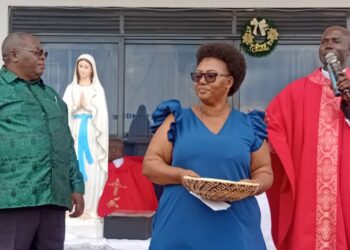By Denis Jjuuko
On Friday last week, Ronald Muwenda Mutebi, the Kabaka of the Kingdom of Buganda visited Masengere building near Bulange to launch the new studios of CBS FM, a radio that belongs to his kingdom. CBS was marking 22 years since it started operations on June 22, 1996. This July, Mutebi will be marking 25 years as the Kabaka of Buganda. The studio launch is, therefore, part of the activities to mark his silver jubilee.
It is a remarkable achievement for CBS given the fact that most businesses that are started in Uganda don’t live to see their fifth birthday. It is also important to note that CBS spent a year when it was off air as the government claimed that it was inciting violence during the Kayunga riots of 2009.
But to contextualize CBS’ role in developing our economy, one may need to go back to pre-June 1996 days. Uganda’s music scene was predominantly western and Congolese. In 1993, the government liberalized the private sector leading to the set up of several privately owned stations. Today, probably Uganda has the biggest number of radio stations per capita. The stations mainly focused on the American Top40 format where they provided western music and concepts. Valentines Day became more popular in the years after 1993. Speaking with a western accent showed sophistication.
In that regard, CBS I think due to its ownership and probably business acumen of Peter Ssematimba, its first head of programmes (his title may have been more fancy) went for a market that wasn’t served by the newly established stations and Radio Uganda. Although they carried death announcement programming just like Radio Uganda, they introduced drama and entertainment. Kalisoliiso, a sports segment every weekday morning is the definition of drama and one of the most popular slots on radio today. They didn’t only present sports in a funny way, they also went local when it came to music. They presented in Luganda as opposed to English.
The promotion of local music instead of western artists must have led to the move of Ugandan musicians to the mainstream. Of course CBS played western music too but it also played Ugandan songs that may not have had a lot of appeal to the youth that stations were targeting then. The popularization of Ugandan music led to the ‘death’ of Congolese music. Today, you hardly hear of a concert headlined by a Congolese musician. Their Congolese music shows were to be replaced by Ugandans. I think the rise of the Chameleones and Babe Cools in the late 1990s has something to do with FM stations embracing local songs. Looking at the popularity of CBS, other stations eventually started playing Ugandan music and creating African music programming.
Actually, CBS didn’t stop at playing music, it also started organizing shows at Nakivubo Stadium commonly known as Ekitobeero where the majority of Ugandan musicians were showcased. Of course, once in a while other foreign artists were brought in to perform but it was predominantly Ugandan singers. Of course the likes of Hope Mukasa and Ssematimba had established modern studios and Karaoke shows at mainly Sabrianas were the rage establishing stars that include Juliana Kanyamozi and Irene Namubiru. Nairobi studios, as Chameleone would sing later, were only a Mawingo bus away.
Before we knew it, a local music industry had been established, which continues to flourish to the present day. There is no club, pub or major event in Uganda today where they won’t play Ugandan music. It is not uncommon to go to a nightclub that would play local music the entire night without revelers complaining.
Although CBS still organizes musical shows now dubbed Enkuuka y’Omwaka (Grand End of Year Party) every December, it seems to have moved away to break new ground which no other station has been able to do. It’s programme called Nsidika Nkyake literally translated as kick starting someone, which provided the case for my undergrad thesis at Makerere University, created many entreprenuers and helped people get themselves out of poverty. By doing that, it actually created a dedicated audience that it would easily sell to advertisers. That audience today is under an umbrella of small-scale industry entrepreneurs who come together to exhibit their products at least once a year.
This means that beyond entertainment and the frivolous stuff that dominate our media today, could there be any lessons to learn from this? Would legacy media houses becoming organizers of their communities help them become more profitable? There is a decline in adversting spend and legacy media with all their costs compete with digital platforms with little overheads. Because if a media house helped new entreprenuers get up and running, wouldn’t they be the future advertisers when their businesses grow?
The author is a communication and visibility consultant. djjuuko@gmail.com
Photo: Kabaka Mutebi launching CBS’ new studios on Friday last week
Do you have a story in your community or an opinion to share with us: Email us at editorial@watchdoguganda.com











